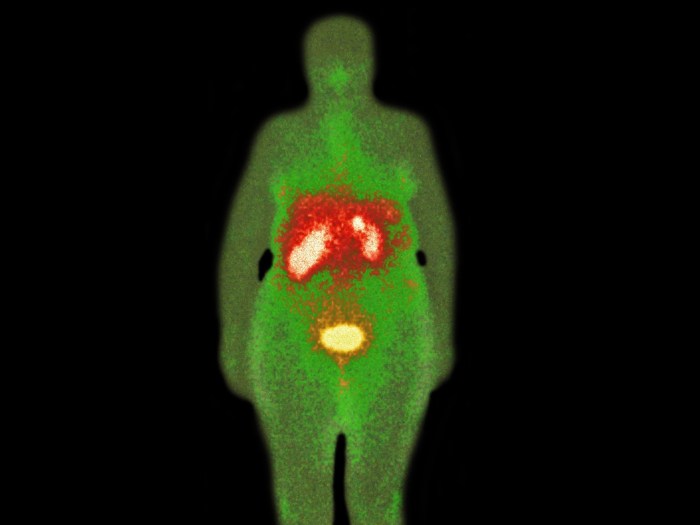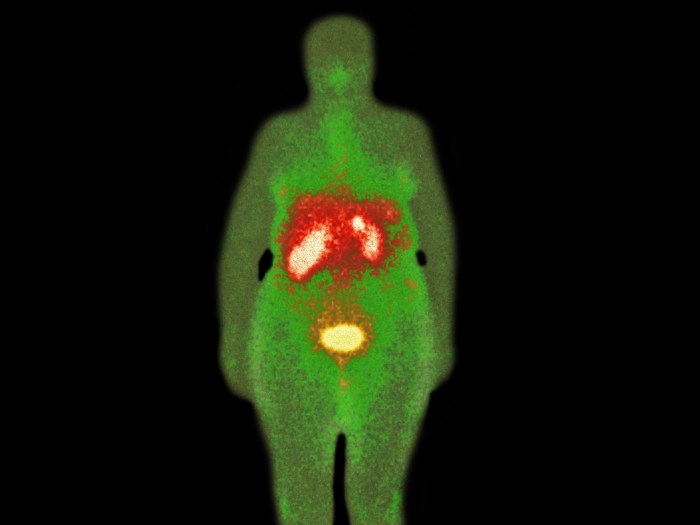Cancer diagnosis solo flight: a deeply personal and often isolating experience. This journey delves into the unique challenges faced by individuals navigating the complex medical system without the support of family, friends, or a robust support network. We’ll explore the emotional, financial, and practical hurdles, contrasting them with the experiences of those receiving comprehensive support systems. The discussion will examine coping mechanisms, potential risks, and valuable resources for those facing this daunting path alone.
This exploration of cancer diagnosis solo flight examines the individual experience, emphasizing the steps involved in the diagnostic process, the potential impact on treatment decisions, and the critical role of self-care strategies. We’ll uncover the practical considerations of a solo journey, including financial burdens and difficulties accessing resources. The article also includes hypothetical case studies to illustrate the realities and emotional toll of this path.
Understanding the Concept of “Solo Flight” in Cancer Diagnosis: Cancer Diagnosis Solo Flight
Navigating a cancer diagnosis is profoundly challenging, demanding resilience and strength. For some, the journey is undertaken largely alone, a “solo flight” fraught with uncertainty and emotional isolation. This experience contrasts sharply with the supportive environment offered by various assistance systems. This exploration delves into the intricacies of this solo approach, highlighting the advantages and disadvantages, and comparing it with the experience of receiving comprehensive support.The term “solo flight” in cancer diagnosis refers to the experience of facing the disease and its associated treatments without extensive or formal support systems.
This often involves managing medical appointments, treatments, and the emotional toll of the diagnosis independently. This contrasts with receiving structured support, either from family, friends, support groups, or professional counselors.
Defining Support Systems in Cancer Diagnosis
Support systems during cancer diagnosis are multifaceted. Individual support often comes from close relationships with family and friends, who offer emotional comfort and practical assistance. Group support, in contrast, involves connecting with others facing similar experiences. This can be through support groups, online forums, or specialized programs tailored for cancer patients. These systems vary in their structure, intensity, and impact.
Individual vs. Group Support
Individual support systems, often rooted in personal relationships, offer tailored emotional and practical assistance. However, they can be limited by the capacity of the individuals involved. Group support, on the other hand, provides a broader network of understanding and shared experience. This collective approach can offer emotional validation, practical advice, and a sense of community. Crucially, these two types of support are not mutually exclusive and can complement each other.
Solo vs. Assisted Cancer Diagnosis Journeys
The experiences of those undergoing cancer diagnosis independently differ significantly from those who receive comprehensive support systems. Solo patients often shoulder the full weight of decision-making, financial burdens, and emotional challenges. This can lead to increased stress and isolation. Conversely, patients with strong support systems can benefit from shared responsibilities, emotional support, and practical assistance. This often translates into a smoother and more manageable journey.
Potential Benefits and Drawbacks of a Solo Approach
A solo approach to cancer diagnosis may offer a degree of independence and control, allowing the patient to make decisions aligned with their personal values and beliefs. However, this can lead to feelings of isolation, increased stress, and potentially delayed access to crucial resources. This lack of support can impact the patient’s emotional well-being and treatment adherence.
Comparison of Solo vs. Assisted Cancer Diagnosis
| Aspect | Solo Flight | Assisted Flight |
|---|---|---|
| Emotional Support | Limited to personal relationships, potentially leading to feelings of isolation and loneliness. | Stronger support network through family, friends, support groups, or professionals. Shared experiences and validation. |
| Financial Burden | Full financial responsibility for medical expenses, treatment costs, and potential loss of income. | Potential for financial assistance, shared costs, and support with financial planning, reducing the individual’s burden. |
| Decision-Making Process | Complete autonomy in medical decisions, but potential for overwhelming choices and isolation. | Shared decision-making, access to expert advice, and support in navigating complex medical information. |
Navigating the Diagnostic Process Independently
Embarking on a cancer diagnosis journey alone can be daunting. The medical landscape is complex, filled with unfamiliar terminology, procedures, and decisions. This process demands significant emotional and mental fortitude, particularly when navigating it independently. This exploration dives into the practical steps, common challenges, and potential impacts of this solo approach.The cancer diagnostic process, though variable, typically involves a sequence of steps.
It often begins with a patient’s initial observation of symptoms or a recommendation for screening. This is followed by a consultation with a healthcare provider, physical examinations, and potentially various diagnostic tests. These tests could range from blood work and imaging scans (like X-rays, CT scans, MRIs) to biopsies. If the initial tests suggest a potential concern, further investigations, such as genetic testing or specialized imaging, might be necessary.
Subsequent discussions with specialists, like oncologists or radiologists, can lead to a definitive diagnosis. This journey, while often challenging, can be navigated with appropriate resources and support.
Steps in the Diagnostic Process
The diagnostic process, while intricate, unfolds in a generally sequential manner. Initial observations of symptoms, followed by medical consultations, lead to various diagnostic tests and investigations. The results of these tests, often analyzed by specialists, may necessitate further investigations. This process culminates in a diagnosis, if deemed necessary, and further steps towards treatment planning.
Challenges Faced by Individuals Navigating the Process Alone
Navigating a cancer diagnosis independently presents unique challenges. Individuals may experience difficulties in comprehending complex medical information, leading to uncertainty and anxiety. The sheer volume of medical jargon, test results, and procedures can be overwhelming, especially without a supportive network. This lack of a trusted support system can also hinder the ability to ask clarifying questions and advocate for oneself.
Finding time to research options and understand different treatment approaches can also be a significant hurdle.
Facing a cancer diagnosis solo can be incredibly tough, but even amidst the emotional rollercoaster, finding ways to cope and plan ahead is key. One such way is to explore options for affordable travel, like budgeting for a trip to Auckland. Planning a trip to auckland on a budget can offer a much-needed distraction and a fresh perspective, allowing you to recharge and gather strength for the journey ahead.
This is especially true when facing a solo flight to manage a cancer diagnosis.
Impact of the Solo Approach on Treatment Decisions, Cancer diagnosis solo flight
The solo approach can significantly impact treatment decisions. Individuals might feel pressured to make rapid decisions without adequate time to gather information and explore different options. A lack of emotional support can lead to feelings of isolation and discouragement, potentially affecting the quality of treatment decisions. This can lead to treatment plans that may not be optimal or aligned with the patient’s needs and values.
Resources for Individuals Navigating the Process Independently
Accessing reliable information and support is crucial for individuals navigating the cancer diagnosis journey independently. A robust network of resources can help alleviate some of the anxieties and uncertainties associated with this challenging process.
- Cancer Support Groups: These groups provide a platform for sharing experiences, gaining emotional support, and connecting with others facing similar challenges. They can be invaluable in offering guidance and encouragement.
- Patient Advocates: These individuals can act as intermediaries, assisting patients in navigating the healthcare system and accessing necessary resources. They can help patients understand medical terminology, advocate for their needs, and help in coordinating care.
- Online Communities: Numerous online communities dedicated to cancer support offer a platform for information sharing, support, and connection. However, it’s crucial to verify the credibility of information found in these forums.
- Medical Professionals: Healthcare providers, including oncologists, nurses, and social workers, are valuable resources. Open communication and active participation in discussions with these professionals can significantly ease the diagnostic journey.
Information Gaps and Challenges in Solo Cancer Diagnosis
The following table Artikels potential information gaps and challenges faced by individuals navigating a cancer diagnosis independently.
| Area | Potential Gap/Challenge |
|---|---|
| Information Access | Difficulty in understanding complex medical terminology and procedures. Limited access to reliable information sources, potentially leading to misinterpretations or misconceptions. |
| Emotional Support | Lack of a supportive network, leading to feelings of isolation, anxiety, and uncertainty. Potential for emotional distress and decreased ability to cope with the diagnosis. |
| Decision-Making | Difficulty in gathering information and evaluating different treatment options. Pressure to make quick decisions without adequate time for reflection and consultation. |
Impact on Mental and Emotional Well-being

Navigating a cancer diagnosis, even with support systems, can be emotionally taxing. Facing this journey alone adds another layer of complexity. The psychological and emotional toll can be significant, impacting self-esteem, relationships, and overall well-being. This section delves into the emotional challenges of a solo cancer diagnosis and provides practical strategies for coping and self-care.The isolation and fear associated with a solo cancer diagnosis can trigger a cascade of negative emotions.
Individuals may feel overwhelmed, anxious, and uncertain about the future. A lack of support can exacerbate these feelings, leading to depression and a decline in overall mental health. Recognizing these potential challenges is crucial for developing effective coping mechanisms.
Emotional Toll of Solo Diagnosis
The emotional landscape of a solo cancer diagnosis can be profoundly challenging. The weight of decisions, medical procedures, and treatment plans often falls solely on the individual’s shoulders. This can lead to feelings of isolation, helplessness, and a sense of being overwhelmed. The lack of a support network can exacerbate feelings of fear, anxiety, and uncertainty.
Facing a cancer diagnosis can be incredibly daunting, especially when you’re embarking on a solo flight. It’s a challenging journey, requiring immense strength and resilience. Fortunately, programs like the St Lucia Live It program might offer a much-needed respite, helping to focus on wellness and recovery during this difficult time. Finding support and a supportive environment can be crucial in such a personal journey, like a solo flight, to navigate the complexities of cancer diagnosis.
Coping Mechanisms for Individuals Facing a Solo Cancer Diagnosis
Developing coping mechanisms is essential for navigating the emotional complexities of a solo cancer diagnosis. These strategies can help manage stress, anxiety, and feelings of isolation.
- Seeking Support from Online Communities: Online forums and support groups can provide a sense of connection and shared experience with others facing similar challenges. This can be particularly valuable for individuals who lack a strong support network in their immediate surroundings. Connecting with others facing similar struggles can offer valuable insights, emotional support, and a sense of belonging.
- Journaling and Mindfulness Practices: Regularly documenting thoughts, feelings, and experiences can help process emotions and gain perspective. Mindfulness techniques, such as meditation and deep breathing exercises, can be invaluable in managing anxiety and promoting emotional regulation. These practices can help individuals to stay grounded and focused amidst the uncertainties of their diagnosis.
- Prioritizing Self-Care: Maintaining a healthy lifestyle, including balanced nutrition, regular exercise, and sufficient sleep, is critical for emotional well-being. Engaging in activities that bring joy and relaxation, such as hobbies or spending time in nature, can help mitigate stress and promote a sense of normalcy. This is vital for maintaining physical and mental resilience during treatment.
Strategies for Promoting Self-Care and Emotional Well-being
Developing a self-care plan is crucial for maintaining emotional well-being throughout the diagnostic and treatment process. This plan should incorporate activities that promote relaxation, reduce stress, and foster a sense of control.
- Creating a Support System: Even in the absence of close family or friends, individuals can build a support system through online communities, support groups, or professional counselors. Seeking professional help can be a valuable resource for navigating the emotional challenges of a solo diagnosis.
- Engaging in Hobbies and Activities: Engaging in activities that bring joy and relaxation can help distract from the anxieties associated with the diagnosis. These activities can provide a sense of normalcy and purpose, and contribute to a sense of control in an often overwhelming situation. Continuing to pursue hobbies can help maintain a sense of self and identity.
- Maintaining a Healthy Lifestyle: Maintaining a balanced diet, regular exercise, and sufficient sleep can significantly impact emotional well-being. These lifestyle choices can help manage stress and promote a sense of physical and mental strength during a challenging time. Physical health is intrinsically linked to emotional well-being.
Potential Risks Associated with a Solo Approach on Emotional Health
A solo cancer diagnosis can expose individuals to several risks regarding their emotional well-being. These risks can range from feelings of isolation and despair to heightened anxiety and potential depression.
Navigating a cancer diagnosis can feel incredibly isolating, and a solo flight, perhaps to rejuvenate, might seem like a good idea. But, if you’re looking for a change of scenery to help with processing, exploring the beautiful landscapes of Virginia could be a fantastic option. Consider the scenic drives and historical sites, like the ones found in best places to visit in virginia.
It might be a small step, but it could provide a necessary escape while you’re going through this difficult time, allowing for some much-needed introspection on your journey to recovery.
- Increased Risk of Isolation and Loneliness: The lack of a support network can lead to feelings of isolation and loneliness. This can exacerbate emotional distress and hinder the ability to cope effectively with the challenges of the diagnosis. This isolation can further fuel negative emotions.
- Heightened Anxiety and Stress Levels: The responsibility for managing all aspects of the diagnosis can lead to heightened anxiety and stress levels. This burden can be overwhelming, especially without the support of loved ones or professionals. This increased stress can impact the individual’s ability to make sound decisions.
- Potential for Depression: The emotional strain of a solo cancer diagnosis can significantly increase the risk of developing depression. The lack of emotional support can make it more difficult to manage the challenges of the disease and its impact on life. This can lead to a negative spiral of emotions.
Potential Symptoms and Signs of Stress During a Solo Cancer Diagnosis
Recognizing the symptoms of stress is crucial for seeking help and managing the emotional toll of a solo cancer diagnosis.
| Symptom | Description | Potential Impact |
|---|---|---|
| Anxiety | Persistent worry, nervousness, and fear, often accompanied by physical symptoms like rapid heartbeat and shortness of breath. | Can significantly impact daily functioning and decision-making. |
| Isolation | Withdrawal from social activities and relationships due to feelings of overwhelm and fear. | Can lead to a further decline in emotional well-being and exacerbate feelings of loneliness. |
| Depression | Persistent sadness, loss of interest in activities, feelings of hopelessness, and changes in appetite or sleep patterns. | Can severely impact quality of life and ability to cope with the diagnosis. |
Illustrative Case Studies (Descriptive, not personal)
Navigating the complexities of a cancer diagnosis independently can be challenging, requiring a proactive and well-informed approach. This section provides hypothetical case studies to illustrate the diverse experiences and potential difficulties encountered in such a journey. These examples aim to highlight the importance of understanding the process and the resources available to support individuals.
Hypothetical Case Study: Sarah’s Journey
Sarah, a 45-year-old marketing executive, experienced persistent fatigue and abdominal discomfort. Initially, she attributed these symptoms to stress and overwork. However, the symptoms persisted, prompting her to research online. Finding possible correlations with ovarian cancer, she decided to take an independent approach to diagnosis.
The Diagnostic Process
Sarah meticulously documented her symptoms, noting dates, severity, and any potential triggers. She then contacted several doctors for second opinions, requesting specific tests and further investigations. This independent research, while potentially helpful, also exposed her to varying perspectives and conflicting information. The process of gathering information, scheduling appointments, and coordinating tests became a significant time commitment. She often felt overwhelmed by the sheer volume of information and the need to make rapid decisions.
Emotional and Practical Challenges
The emotional toll of a solo diagnosis was significant. Sarah struggled with feelings of isolation, uncertainty, and fear. The lack of direct support from a healthcare team, coupled with the pressure to navigate complex medical terminology and procedures independently, created a substantial emotional burden. Financially, the diagnostic journey imposed considerable stress. Scheduling appointments, paying for tests, and potential future treatments all contributed to her financial concerns.
Sarah’s job also posed a challenge, requiring careful consideration of her treatment plan in relation to her work commitments.
Navigating Treatment Options
Sarah actively researched different treatment options, comparing potential side effects and recovery times. She consulted with several oncologists, seeking clarification on treatment plans and potential outcomes. She took detailed notes, comparing various treatment options. Her meticulous approach allowed her to make informed decisions, despite the complexity of the situation.
Conclusion
This hypothetical case study underscores the diverse challenges individuals face during a solo cancer diagnosis. The emotional burden, practical difficulties, and navigating a complex medical landscape require resilience and resourcefulness. While independent research can be empowering, it’s crucial to understand the importance of seeking professional guidance and support networks throughout the process. Ultimately, Sarah’s journey exemplifies the strength and determination required to face such a significant life event.
Conclusive Thoughts

In conclusion, navigating a cancer diagnosis alone is undeniably challenging, impacting emotional well-being, financial stability, and decision-making. While support networks can provide crucial assistance, understanding the unique hurdles faced by those undertaking this journey solo is paramount. This discussion highlights the importance of accessible resources, self-care strategies, and the vital role of empathy and understanding in supporting individuals facing this profound experience.
By acknowledging the challenges and offering insights, we can foster a more compassionate and supportive environment for those facing a cancer diagnosis solo flight.

